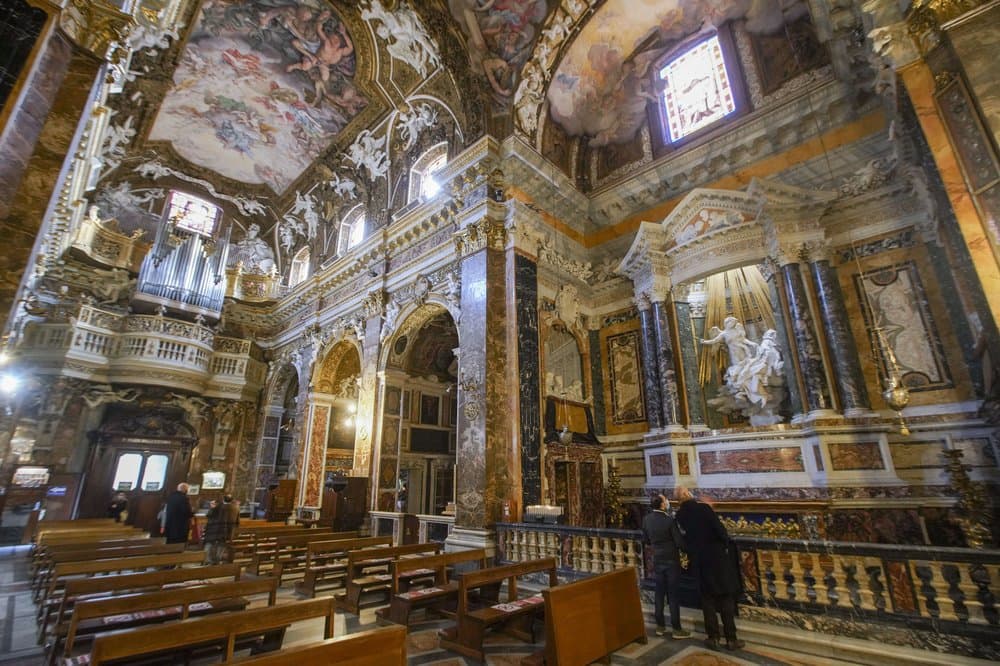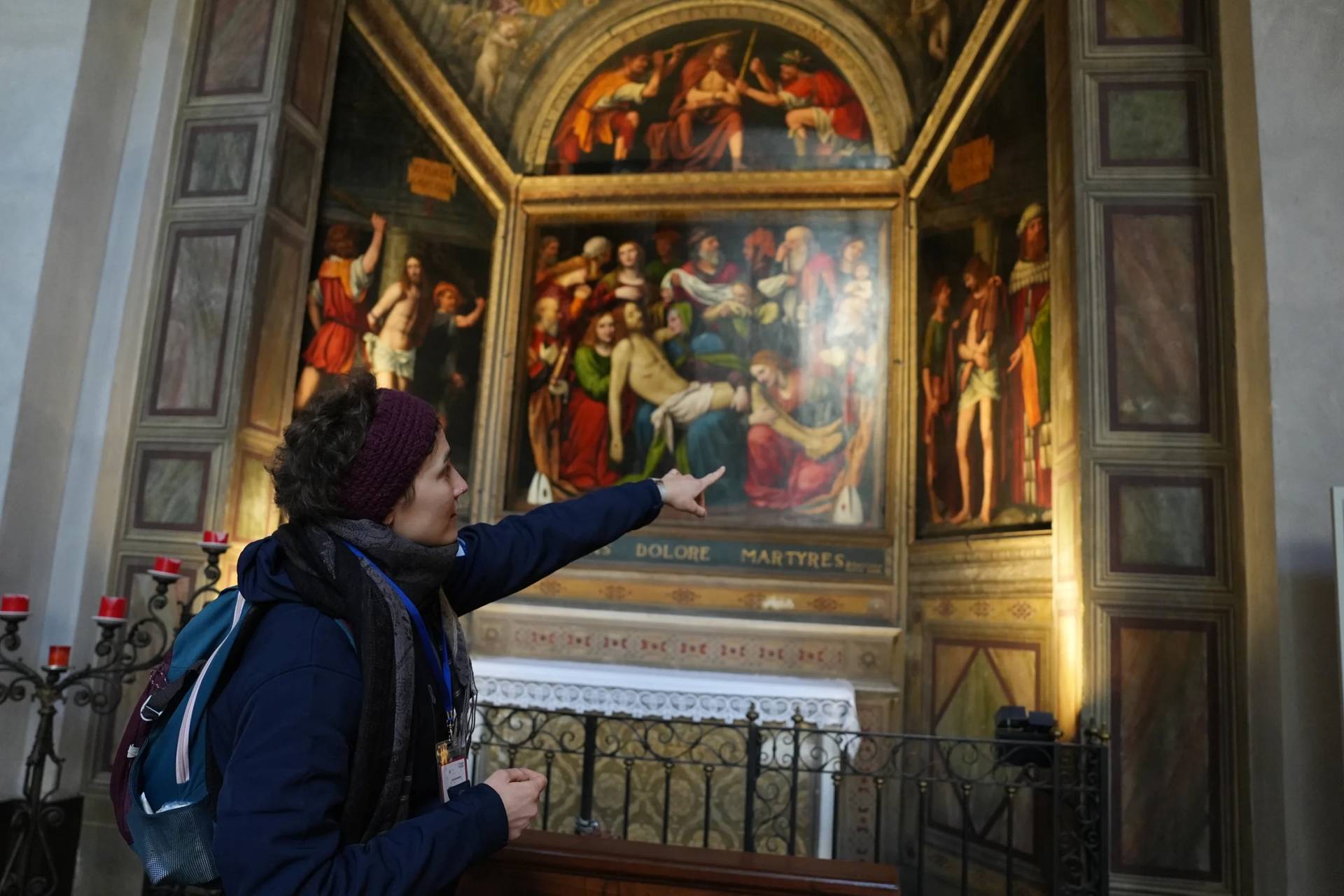ROME – Facing a worrying increase in new infection rates driven in part by the delta variant, the Italian government Thursday rolled out new rules requiring citizens to present a ‘Green Pass’ demonstrating they have either been vaccinated, or have had a negative COVID test in the past 48 hours, to be admitted to most indoor venues in the country.
As of August 6, the Green Pass mandate applies to virtually any setting where people gather indoors, from bars and restaurant to concert halls, museums, gyms and swimming pools. Yet there’s one other place where scores of Italians come together inside on a weekly basis that’s notably missing: Church.
A spokesman from the Italian bishops’ conference told Crux July 22 that so far, “there has been nothing” in terms of discussion about whether a Green Pass or negative COVID test will be necessary to attend Mass or other indoor church events, such as baptisms, weddings and funerals.
The hands-off approach to the church marks a strong contrast with Italy’s first Covid 19 lockdowns in March 2020, when public liturgies were suspended amid criticism from some Italian bishops and Catholic laity regarding possible religious freedom violations, not to mention objections to defining auto repair facilities and tobacco shops as “essential” services but not worship.
As part of the new Italian system, owners or managers of indoor services who violate the new Green Pass rules could face a fine between 400-1000 euros, and if they fail to comply with the new norms three times or more, the business could be closed from 1-10 days. Rapid COVID tests have been made available more broadly at reduced prices until Sept. 30 in order to ensure higher compliance with the new rules.
The moves come as Italy faces a worrying increase in the number of new infections, driven largely by the dangerous and easily transmittable delta variant. In the past week alone, the number of cases in Italy has nearly doubled, with more than 5,000 infections reported on Thursday.
In total, Italy has had more than 4.3 million confirmed COVID cases since the beginning of the outbreak in spring 2020, with nearly 128,000 deaths.
Around half of Italians have been fully vaccinated, but with the summer holiday season in full swing, many are not showing up to their appointments to get the second jab.
Yet this time around, as the numbers increase and restrictions begin to tighten again, the Catholic Church in the country has notably been left out of any talk of further restrictions.
One reason, the bishops’ conference spokesman said, is because the situation is “constantly evolving,” but that doesn’t really explain why a pass will be required to go to a museum or a restaurant but not for Mass.
During Italy’s strict coronavirus lockdown in 2020, Masses were suspended for nearly three months as part of a wider ban on all public gatherings in a bid to curb the number of infections.
The suspension of Masses sparked a widespread national debate on religious freedom, with many arguing that access to spiritual support was an ‘essential service’ in such a difficult time, and that the ample size of Italian churches allowed faithful to spread out without fear of contagion.
Toward the end of Italy’s initial 3-month lockdown last spring, the government was slow to allow citizens to return to Mass, reopening access to museums, theaters, and hairdressers before churches were allowed to welcome parishioners for Mass again.
Italy’s bishops pushed back at the time by invoking their autonomy and threatening to sidestep the government entirely and issue their own protocols for a return to the sacraments, however, they backed off at the behest of Pope Francis, who urged them to “obedience” with civil authorities.
Churches were reopened to public access shortly after, and since then, most parishes have maintained strict limits on how many people are able to attend Mass at a time, with clear spacing in the pews, mask requirements, and hand sanitizer at the front of the church, instead of holy water.
Even though the pope stepped in to avoid a rift between Church and state last fall, it is unlikely the Italian government wants to revisit that debate and the inevitable pushback from those who would view further restrictions as a violation of religious freedom.
Follow Elise Ann Allen on Twitter: @eliseannallen












